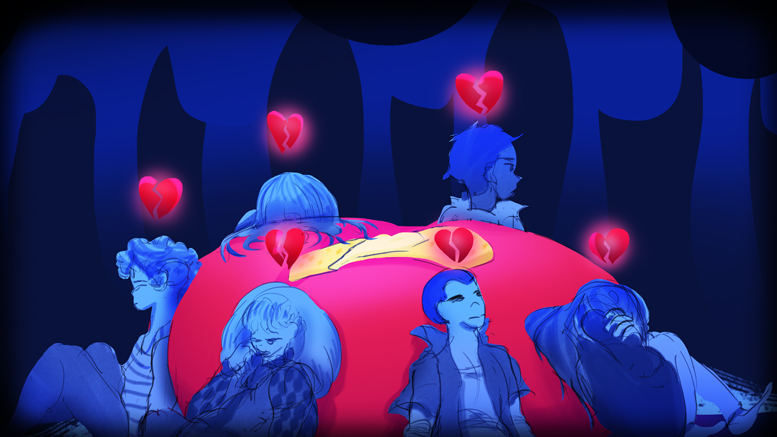Heartbreak is a nearly inevitable part of life. Almost everyone at some point, for some reason or another, will experience deep grief over the end of a relationship.
The pain is both physical and emotional. You literally feel like your heart is in pieces, you feel a pain deep inside you, you do and say things completely out of character, and it seems nothing makes you feel okay.
While time (and sometimes lots of it) is the only way to heal, perhaps knowing the science of what your body is going through may help you cope with the pain.
Broken heart syndrome
Aptly named, broken heart syndrome (BHS) occurs after a stressful event which causes your body to react like you are having a heart attack. Broken heart syndrome is also referred to as stress cardiomyopathy or takotsubo cardiomyopathy.
BHS occurs minutes after the triggering event, with symptoms including shortness of breath, low blood pressure, and potential congestive heart failure. The heart beat becomes irregular, and the heart muscles rapidly weaken. These symptoms are not associated with factors typical in cardiovascular disease, such as clogged arteries.
The mechanism of BHS is not clearly understood, although some theories suggest a surge in stress hormones, such as adrenaline and noradrenaline, causes restriction of arteries and increased pressure on the heart. Alternative theories suggest the noradrenaline binds with the heart muscles, causing calcium buildup.
BHS is most likely to affect women, particularly middle-aged and older and post-menopausal. Fortunately, BHS is temporary, with no permanent damage and complete recovery within a few weeks.
Brain drain
When you fall in love, your brain undergoes changes similar to the way a drug addict’s would. Interaction and time spent with your loved one releases dopamine and other reward hormones. Your brain becomes wired in a way to keep you motivated to retain your love. This is generally referred to as a goal-oriented motivational state.
After a breakup, your brain still remains wired in this state, which could explain why some jilted lovers will show up at an ex’s workplace or text them repeatedly trying to reconcile. Their brain is simply programmed to do whatever it takes to keep the relationship, and reward, going.
The longer a relationship lasted, the more neurons that need to be rewired in the brain to change this behaviour.
Additionally, the same neural pathways that respond to physical pain also respond to emotional pain. This is why grief feels like your body is in pain.
Some psychologists believe this is an evolutionary effect from when humans were hunter-gatherers. In the context of social pain, it is theorized the brain is programmed this way since isolation could lead to real physical pain, when being separated from a group. This would make the isolated individual a target for predators.
If you find yourself spending Valentine’s Day alone this year, pining over a loved one, you might find some comfort in knowing that your heartbreak is simply the result of evolution to keep our species thriving. And, while it might feel like your heart is literally breaking, you’re really just experiencing heart attack-like symptoms and will recover. Give your neurons some time to re-wire.


